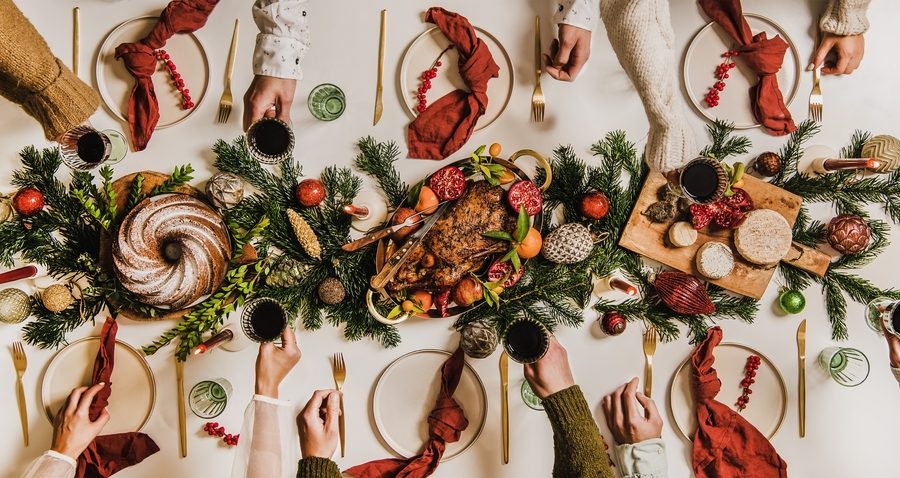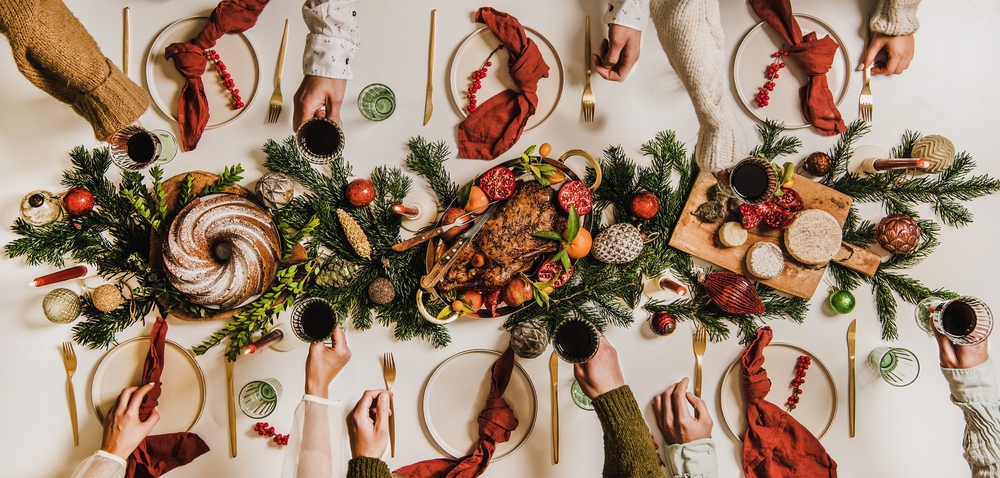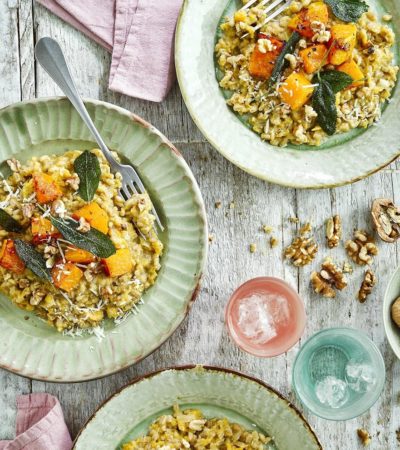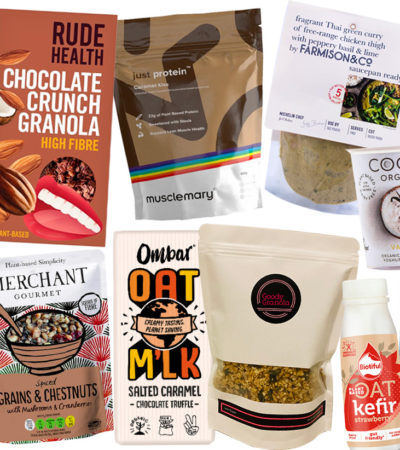Food waste is a real problem, and it’s not going away anytime soon. In the UK alone we end up throwing away 22% of our household food shop, which according to Olio, sets us back a whopping £700 each year. What many of us probably don’t realise is that a lot of this waste could be reused or recycled, and that leaves one big question: how can we all do our bit to ensure that we’re using our food wisely? After all, sometimes life gets in the way and things can go off or unused even in a well-planned fridge.
To help you reduce your food waste this Christmas and beyond, take a look at our tips below.
Food recycling
Certain boroughs in London recycle food waste through the weekly bin collections – but that’s not the case everywhere. Check your local council’s website to see if the same service is available to you. All you need to do is to pick up the liners from your council (these bags are compostable with the food and reduce the caddy odour), fill them with your food waste (everything from peelings to vegware compostable coffee cups), then leave the caddy out with your recycling every week. If your council doesn’t offer the scheme then why not try your own food recycling. Joseph & Joseph do a great countertop caddy that allows you to do the same – then use this compost for your plants or donate it to a community garden.
Dehydrating
Ever wondered how those kale chips are made? We’ll let you in on the secret: they’re dehydrated. If you’re often left with unused veg at the end of your week then this could be a great way to extend the life of your food. A standard dehydrator costs around £30-£50 then start getting creative. Simply slice up your unused veg (leftover parsnips or sprouts?) add a bit of oil and spices to taste then dehydrate for 12-16 hours till crisp. Alternatively, try blending any limp looking herbs with some nuts to make your own crackers. That way you extend the lifespan of your food and end up with something to dip into your hummus too.
Make surplus portions
Here’s a trick we can all achieve. Get yourself a good sturdy set of Tupperware and freezer bags! Making a meal that’ll see you through a few servings will save you time and effort as well as food waste. If you’ve got practical storage solutions then you’ll be more likely to work leftovers into your weekly routine. So whether you often cook for one or make big meals for the family, doubling up your portions will make your veg go further and get rid of any half-eaten peppers in the fridge – and give you a more wallet-friendly option for your work lunches too.
Plan your meals
It’s easy to get carried away buying everything that’s on offer on the weekly shop, but it’s more cost-effective and environmentally friendly to take time to plan out meals for the week. That way, you only buy for the nights you’ll be at home. Better still, it’ll likely give you the inspiration for new and exciting dinners too. If you shop online, you can create recipes on Ocado that are easy to add to your bag – simply add the ingredients to your bag and you’re good to go!
Make your freezer work harder
Your freezer is your greatest ally when it comes to combatting food waste. It’s especially useful at Christmas time… with so many (delicious) components to a festive feast, it’s easy to feel overwhelmed and frazzled at the amount of prep. You can use your freezer to store things like your Christmas spuds, desserts and even sides like red cabbage which you can make ahead of time and simply whack in the oven in the morning while you merrily sip on a glass of champers. The same goes for your weekly meals. Set aside Sundays as your prep day and whip up veg-loaded pasta sauces, curries, sweet potato fritters… the ideas are endless. Freezers aren’t just for smoothie ingredients you know!
Use By dates
Obviously, it goes without saying to be careful with food that is out of date, but it’s still good to know the difference between Use By, Best Before and Sell By. Sell By dates refer to the date a shop cannot sell the product after but it doesn’t mean that products are unusable after this. Similarly Best Before dates are a guide – food can usually survive past this date. It’s wise to use your common sense here – be especially careful with meats, for example. Even if your vegetables are looking a little bit worse for wear they can still be used for stock or soups – just boil them with some herbs and whizz up in a processor.
Donate to food banks
Did you know that between April and September 2017, 586,907 three-day emergency food supplies were given to UK citizens in need? That’s a 13% increase on the same period last year, showing how important it is that we stop simply throwing food away. If you recognise that you’re not going to eat the contents of your fridge yourself, look to your local food bank to see if you can donate instead. In addition, most are on the lookout for tinned and dry goods that can be given to families in need – especially in the run-up to Christmas. Head to the Trussell Trust to find a local food bank or take your goods to a nearby supermarket like Tesco to donate to a good cause.
Love Food Hate Waste
If you’re still wondering how you can help, then head to the Love Food Hate Waste website – they’ve got thousands of recipes for leftovers alongside plenty of tips on how to help save your food.

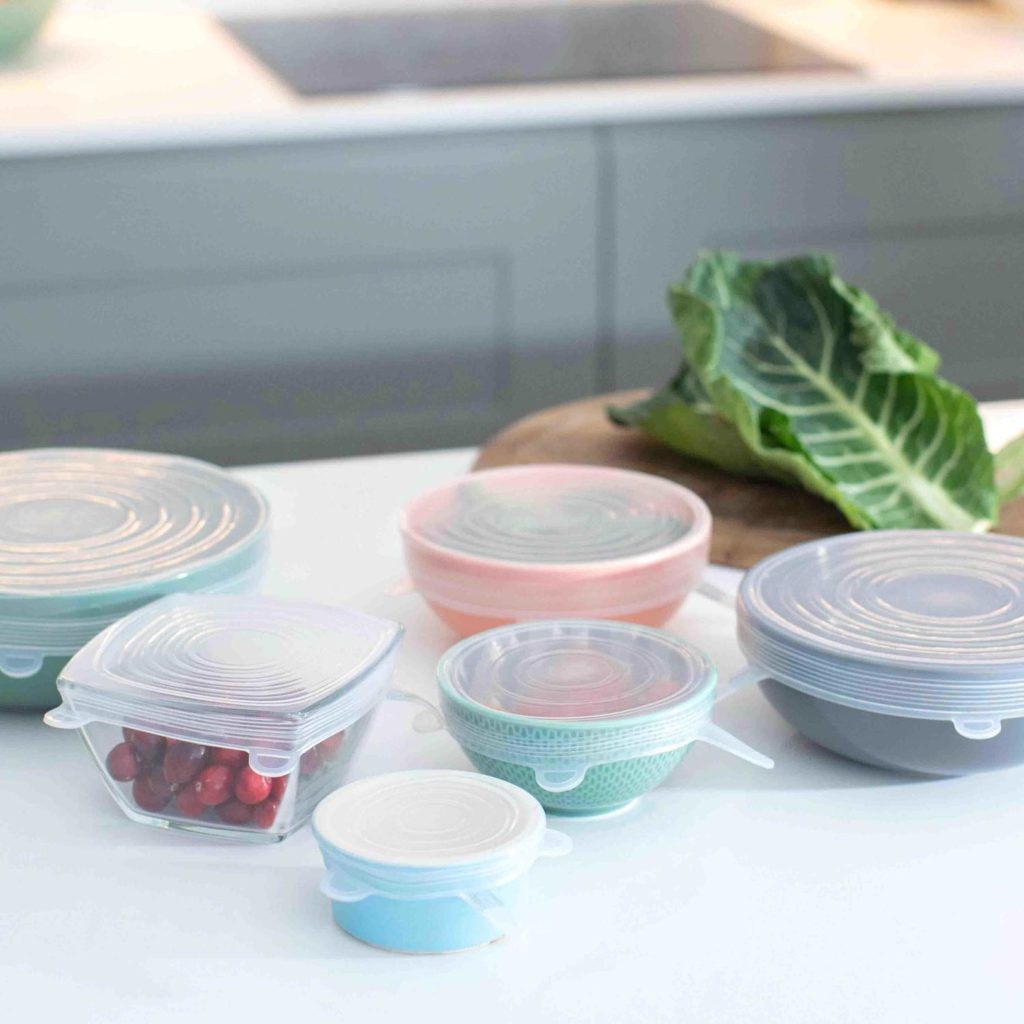
Silicone Lids
Green Island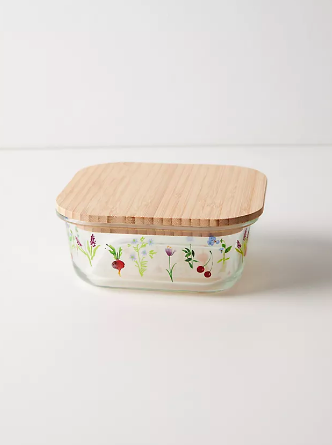
Glass Storage Containers
Anthropologie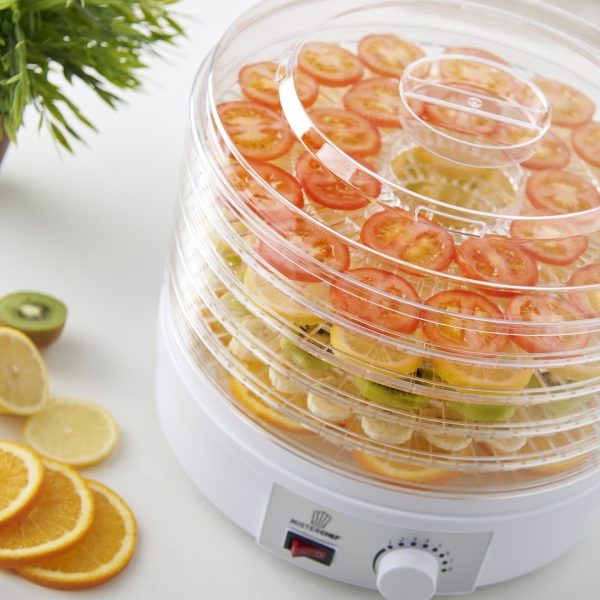
Dehydrator
MisterChef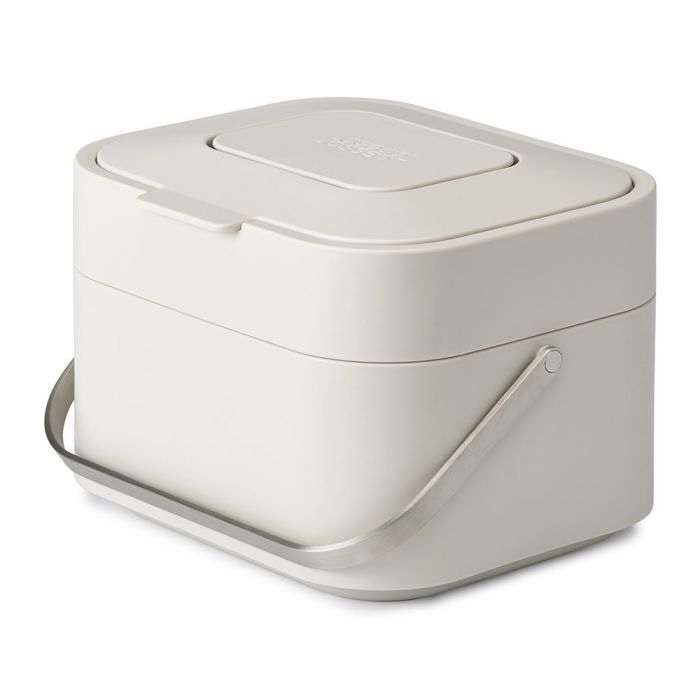
Compost Bin
Joseph Joseph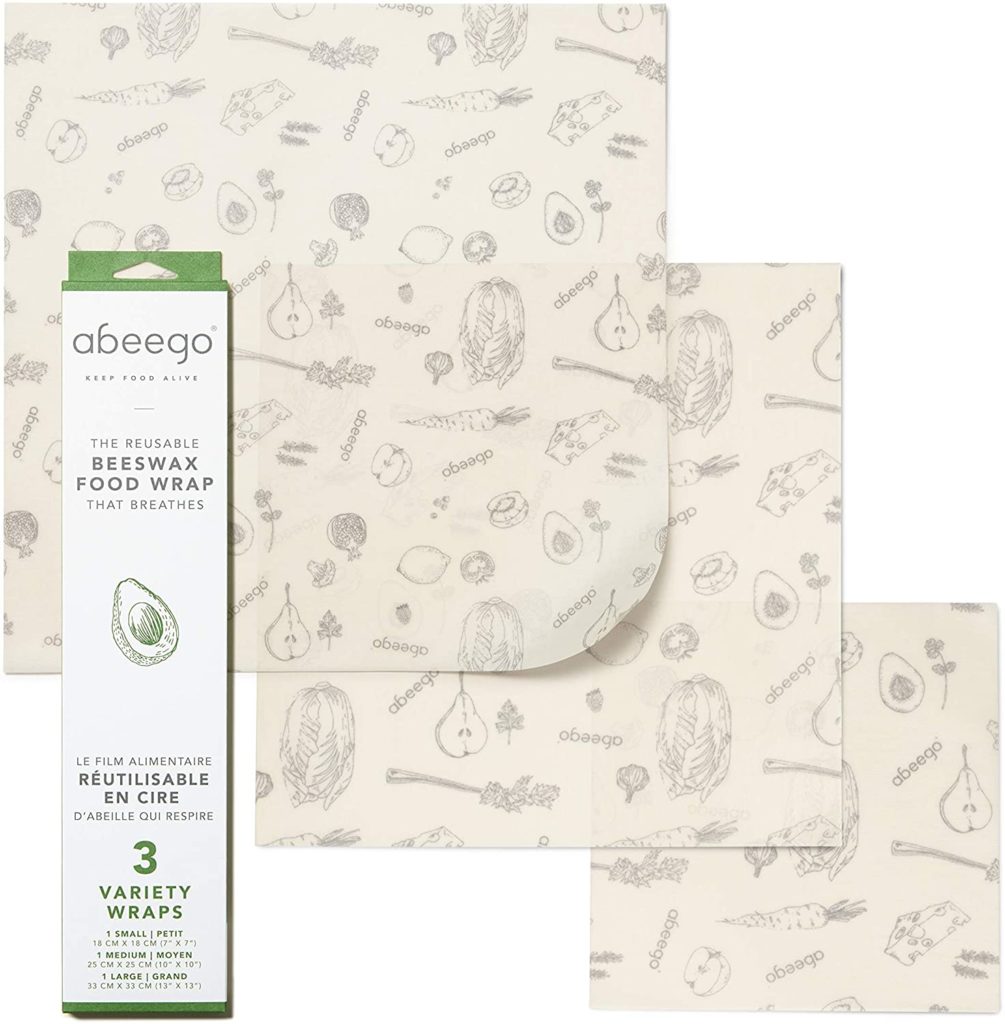
Beeswax Wraps
Abeego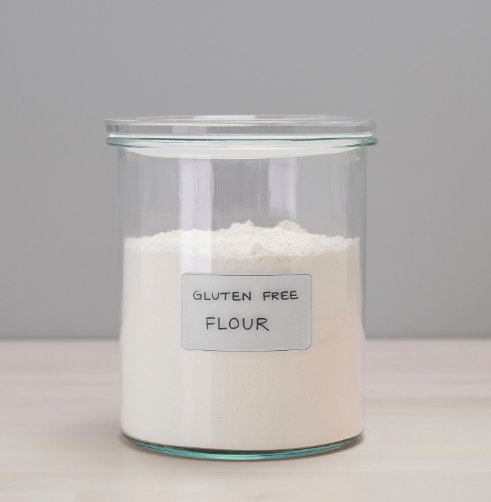
Food Labels
Ikea
More Taste & Less Waste
Emily Davenport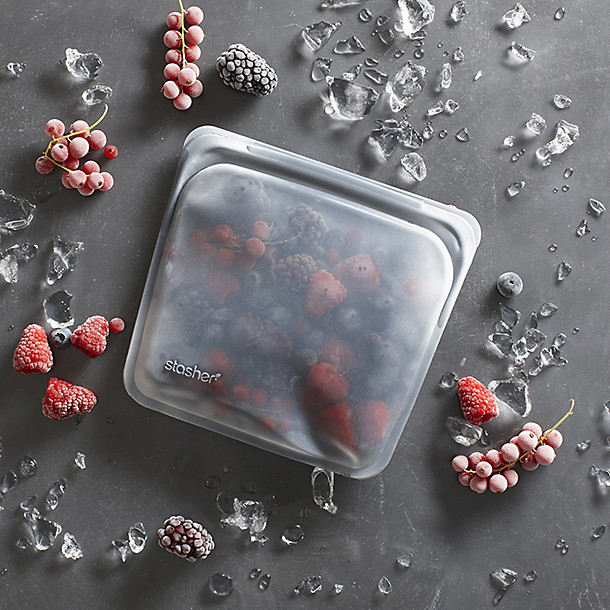
Stasher Bags
Lakeland

